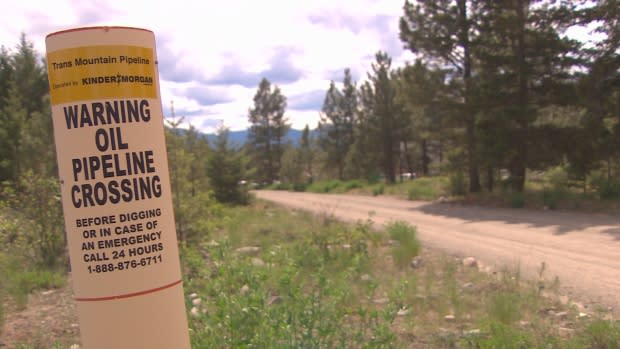Q&A: How buying a pipeline could change the Indigenous business landscape
A group of First Nations have plans to become the new owners of the Trans Mountain pipeline and its controversial expansion plan. Leaders are gathering in Calgary this week to work out the details of how they would buy it from the federal government.
The idea that Indigenous leaders are considering purchasing the multi-billion dollar project is extraordinary, according to Ken Coates, a University of Saskatchewan professor and the Macdonald-Laurier Institute's senior fellow in Aboriginal and Northern Canadian issues.
The price tag would be steep, since the federal government bought the existing pipeline and related infrastructure for $4.5 billion last summer and constructing the expansion pipeline could cost more than $7 billion.

The expansion project is currently stalled after the Federal Court of Appeal ruled in late August there needed to be more consultation with First Nations. The National Energy Board was also instructed to explore the potential impact on the marine environment.
CBC News asked Coates about whether Indigenous groups could one day own the project and the significance of such a proposal. The interview has been edited for length and clarity.
Is there a legitimate chance Indigenous groups could buy the pipeline project?
First thing I'll say is, five years ago people would have thought it was crazy. The fact people don't think it's crazy now tells you how much has happened in terms of Indigenous business over the last half decade or so.
I think it's very serious. The people are not doing this casually. They know it is a financial risk, but they know there is some substantial financial upside. Yes, it's possible. It would be extremely difficult to pull off because you have to find ways of getting all the members on board, you have to find ways of raising the capital, you have to find a management system that works.
But I think it's a sign of confidence of Indigenous business people. It's a sign of the determination of First Nations with oil and gas reserves to have far greater control than they have ever had before over the nature of their industry. It is an exciting possibility and I'm delighted that they're looking at it so closely.

Would it change the landscape for Indigenous groups owning a massive asset like the pipeline?
It changes the game on a number of levels, the most obvious one is sort of a politics of pipelines and oil and gas development in general.
The Indigenous folks who are behind the pipeline are very aware of the environmental issues, very concerned about protecting their own ecosystem and the global ecosystem. They have thought about it very carefully. So it would change the game dramatically in terms of the false dichotomy that put Indigenous people and environmental people on one side of the equation and business and government on the other.
But boy does it ever change the game in terms of Indigenous economic development and the role of Indigenous people within Canadian society at large. Now you're all of a sudden talking about Aboriginal folks being owners or part-owners perhaps of a multi-billion dollar initiative.
It is a declaration of confidence and a declaration of economic independence on behalf of the Indigenous folks who are talking about this.
Watch: Stephen Buffalo explains the rationale
Does it make sense politically for the federal government to sell the Trans Mountain project to Indigenous groups?
I think the government of Canada would be delighted to negotiate the possibility of this kind of a takeover and I think it fits into a whole bunch of their narratives. One part of the federal government's concern is that much-promised new relationship with Aboriginal people.
For more than 150 years, the government of Canada very deliberately blocked Indigenous people from full participation in the economy whether through the Indian Act or a whole bunch of other rules and regulations. They made it really hard for Aboriginal people to own a business. If you owned a business you had to give up your status, etcetera. So, they blocked Indigenous participation in the economy. Logic says then that when new opportunities arise, the government of Canada should go out of its way to create openings for Indigenous folks.
From the government of Canada's point of view, this actually fits very nicely on the new relationship/reconciliation front and it really fits nicely on this commitment to basically break and destroy welfare dependency as the cornerstone of the reality of Indigenous people on reserves, in particular.

Can the Indigenous groups wanting to buy the pipeline overcome the challenges they face?
I think they can be. Remember, from the Indian Resources Council point of view, an investment in a pipeline is actually an investment in their resource development, their oil and gas properties and their overall economic well-being. It's not just investing in a pipeline, which might be a good business deal on his own. But you're actually unleashing an awful lot of economic potential in these communities. When that money comes into these communities, they reinvest in everything from cultural programs, regional economic development, they invested in housing, elder support, etcetera. So, is it possible? Absolutely possible. A lot of this hinges on what price the government of Canada would charge for the pipeline and what the financial arrangements could be. Then the question is will they actually be able to build it and that then becomes a really interesting question on its own.
Watch: Rachel Notley reacts

